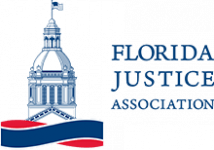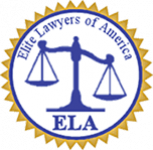A Look at the Modified Comparative Negligence System of Florida
Governor Ron DeSantis of Florida signed HB 837 on March 24, 2023, bringing changes to tort law in the state. The law covers negligence, insurance, and evidence rules, moving from a pure comparative negligence system to a modified comparative negligence system. This shift dramatically affected how damages are assigned in negligence cases, changing legal strategies and outcomes in Florida.
Understanding this law is crucial for both claimants and defendants in navigational tort cases, setting a comprehensive stage for deliberation and settlement in the event of disputes.
You Deserve Expert Legal Representation for Your Personal Injury Case
The Fran Haasch Law Group Accident & Injury Lawyers is an experienced team of personal injury attorneys in Florida who can help you navigate the legal complexities of Florida’s modified comparative negligence law. Our goal is to make sure you receive the compensation you deserve for your injuries and damages.
Our lawyers have extensive experience handling all types of tort cases, from car accidents and slip and falls to bicycle and motorcycle accident cases. We understand the nuances of Florida’s modified comparative negligence law and can develop a strategic legal approach to maximize your chances of a successful outcome. Contact our team today for a free consultation.
What is Florida’s Modified Comparative Negligence Law?
Florida’s Modified Comparative Negligence Law is a legal principle that determines the amount of compensation an individual can receive in a tort case based on their degree of fault. Essentially, if a person is found partially responsible for an accident or injury, their compensation will be reduced by their percentage of fault. However, if they are found to be 50% or more at fault, they may not receive any compensation.
Unlike a pure comparative negligence system, which allows a damaged party to recover even if they are 99% at fault, the modified comparative negligence system limits the ability to recover damages to those parties whose fault is not greater than the defendant’s.
In Florida, as per the newly enacted law, if a claimant is found to be more than 50% responsible for their own injuries or damages, they are barred from recovering any compensation.
How it Differs from Contributory Negligence
Contributory negligence and modified comparative negligence are both doctrines used to determine liability and distribute damages in negligence cases, but they diverge significantly in their application and impact on plaintiffs. Under contributory negligence, if a plaintiff is found to be even slightly responsible for their own injuries (i.e., 1% at fault), they are completely barred from recovering any damages. This all-or-nothing approach can lead to harsh outcomes for plaintiffs who are minimally at fault. In contrast, modified comparative negligence, such as Florida’s system, allows plaintiffs to recover damages as long as their portion of fault does not exceed a certain threshold, typically 50%. This approach provides a more balanced and equitable method of addressing negligence claims, ensuring that plaintiffs who are partially at fault can still obtain compensation proportionate to the defendant’s degree of fault.
How Did Florida’s Negligence Law Change?
Florida used to be a pure comparative negligence state. For over 50 years until March of 2023, the state followed a pure comparative negligence standard. Under this system, a plaintiff could recover damages even if they were more than 50% at fault for their injuries. However, with the passage of HB 837, Florida adopted a modified comparative negligence standard.
The key change under the new Florida law is that claimants found to be more than 50% responsible for their own injuries or damages will not receive any compensation.
The Impact of HB 837 on Florida Residents
The enactment of Florida’s tort reform law, HB 837, on March 24, 2023, marks a significant shift in the legal landscape for Floridians, particularly in negligence cases. One of the most controversial aspects of HB 837 is the transformation of Florida into a modified comparative negligence state. This change has profound implications for all residents, especially for individuals involved in accidents where fault attribution is contentious.
For example, consider a scenario where a biker, legally riding without a helmet as permitted in Florida since July 1, 2000, is rear-ended at a stoplight, resulting in a severe brain injury. Under the new law, if the biker is determined to be 50.1% or more at fault—perhaps for not wearing a helmet, which is argued to have contributed to the severity of their injury—they could be completely barred from recovering damages. This means that despite another party’s clear fault in causing the accident, the injured party could receive no compensation for their injuries, pain, and suffering or long-term care due to the modified comparative negligence rule.
HB 837 thus places a higher burden on accident victims, potentially denying them recovery based on slim margins of fault determination. This aspect of the law underscores the critical need for every Floridian to understand the nuances of HB 837, given its significant impact on rights to compensation following an accident.
Implications for Personal Injury Cases in Florida
The implications of HB 837 for personal injury cases in Florida are substantial, fundamentally altering how damages are calculated and awarded. For victims, the path to securing adequate compensation is now fraught with additional hurdles as their own contribution to their injury or damages comes under sharper scrutiny. This change places an even greater emphasis on the initial assessment of a case and the strategic presentation of claims. Individuals involved in personal injury disputes must be meticulously prepared, with comprehensive documentation and a solid legal strategy to minimize their assigned fault percentage. Furthermore, this shift underscores the importance of early consultation with legal professionals who have a deep understanding of Florida’s personal injury laws.
Calculating Damage Awards under Florida’s Modified Comparative Negligence Law
Calculating damage awards under the modified comparative negligence law involves a two-step process that directly impacts the final compensation an injured party can receive. Understanding these steps is crucial for anyone involved in a negligence case in Florida, whether they are plaintiffs or defendants.
Steps to Determine the Percentage of Fault
The first step in the calculation process is determining the percentage of fault assignable to each party involved in the incident. This determination is typically made by a jury or a judge if the case goes to trial. The jury reviews the evidence presented during the trial, including testimonies, physical evidence, and expert opinions. They then assign a percentage of fault to each party based on their contribution to the accident or injury. For instance, a driver distracted by their phone may be deemed 70% at fault for a car accident, while the other driver, who was speeding, might be deemed 30% at fault.
Impact on the Final Compensation
Once the percentages of fault are determined, the second step involves calculating the final compensation amount. This is done by applying the assigned fault percentages to the total amount of damages awarded by the court. For example, if the total damages in a car accident case are $100,000, and a plaintiff is found to be 30% at fault, their compensation would be reduced by 30%, awarding them $70,000. However, as per Florida’s law, if a plaintiff is found to be 50% or more at fault, they are barred from receiving any compensation. This rule emphasizes the significance of the fault percentage determination process and its profound impact on the financial outcomes for all parties involved in negligence cases.
Why Having an Experienced Lawyer Is Critical
Our Florida personal injury lawyers bring a wealth of experience and a deep understanding of both the legal precedents and the recent changes under HB 837.
Navigating Complexity: Florida’s modified comparative negligence law is complex, and understanding its nuances is essential. Our experienced lawyers can effectively navigate through these complexities to build a strong case.
Determining Fault: Accurately determining and arguing the percentage of fault is critical under this legal framework. Our skilled Florida personal injury attorneys know how to present evidence and argue effectively to minimize your fault percentage.
Maximizing Compensation: Our expert legal team can accurately assess the full value of your claim, including current and future losses, and negotiate aggressively to maximize your compensation.
Avoiding Pitfalls: There are numerous procedural and substantive pitfalls in litigation that can affect your case’s outcome. Our attorneys are familiar with these potential issues and know how to avoid them.
Representing in Court: If your case goes to trial, having a seasoned litigator who is adept at courtroom strategies and persuasive in front of a jury can significantly impact the verdict. We are always prepared to go to trial if your case necessitates it.
Dealing with Insurance Companies: Insurance companies often attempt to minimize settlement amounts or deny claims outright. Our lawyers are experienced in dealing with insurers and can safeguard your interests.
Time Management: Legal proceedings can be time-consuming. Let us handle all aspects of your case efficiently, allowing you to focus on your recovery and personal life.
Legal Advice and Peace of Mind: Beyond just representation, having an attorney provides valuable legal advice and peace of mind, guiding you through each step of the process and ensuring that your rights are protected.
Florida’s Comparative Negligence Law Doesn’t Stop Us From Fighting For You
The Fran Haasch Law Group Accident & Injury Lawyers has over 22 years of experience representing clients in personal injury cases, and we understand the critical nuances of Florida’s modified comparative negligence law. We have an impressive track record of obtaining favorable outcomes for our clients, even under this challenging legal framework. If you or a loved one has suffered an injury as a result of someone else’s negligence, contact us today for a free consultation. Our team of skilled attorneys will vigorously fight for your rights and help you secure the compensation you deserve.












